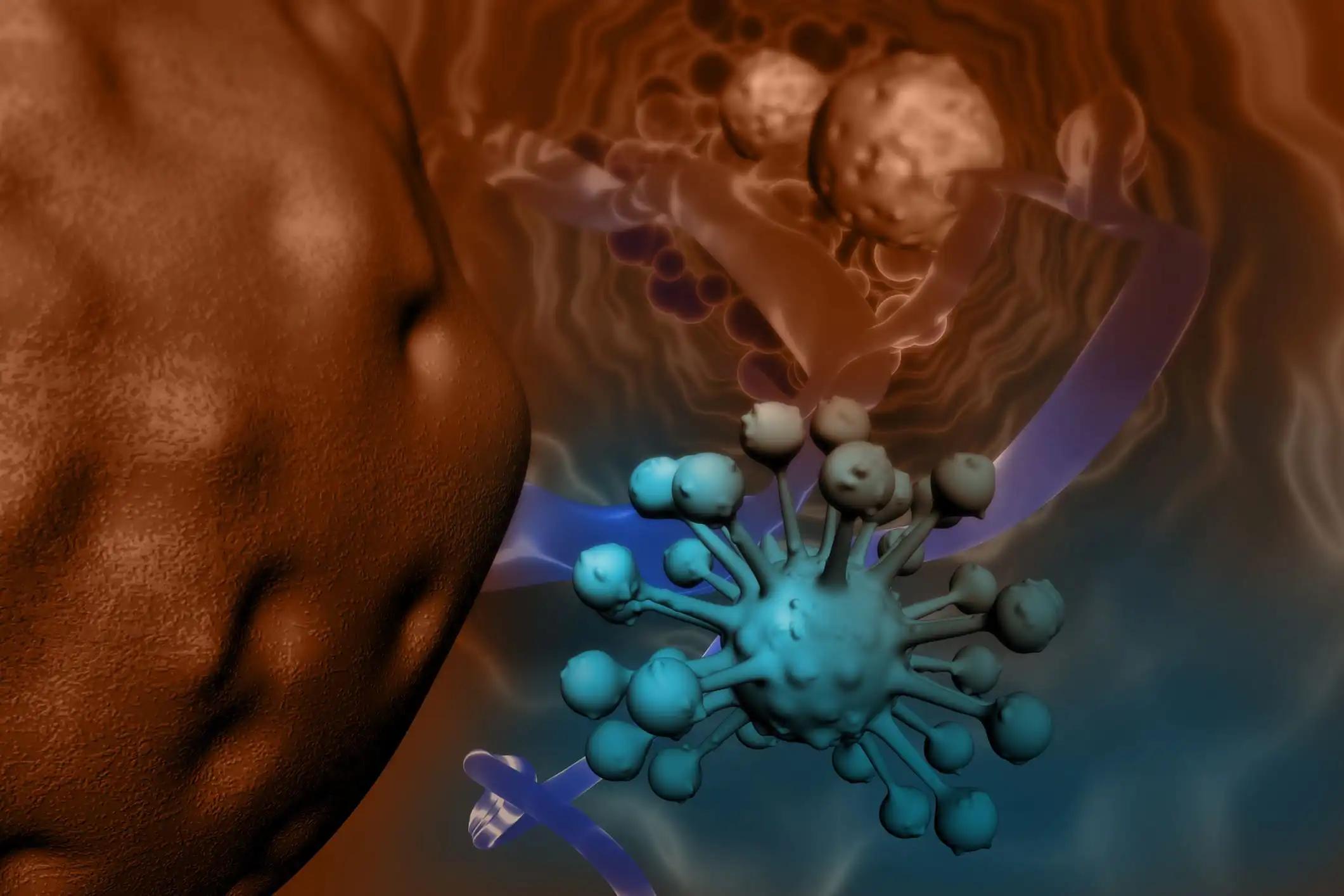KEY TAKEAWAYS
- LidERA is a global, randomized, open-label, multicenter phase III trial for patients with medium- and high-risk stage I-III histologically confirmed ER+/HER2- eBC.
- The trial’s primary aim is to assess the safety and efficacy of adjuvant giredestrant compared to the physician’s choice of adjuvant ET.
- Patients are randomly assigned in a 1:1 ratio to receive either 30 mg of oral giredestrant daily or the standard ET prescribed by the physician, which may include tamoxifen, anastrozole, letrozole, or exemestane.
- The primary endpoint is IDFS, and the secondary endpoints include overall survival, disease-free survival, and patient-reported outcomes.
- Eligible patients are those diagnosed with medium to high-risk stage I-III ER-positive and HER2-negative breast cancer.
- The trial aims to enhance health parity in investigations and broaden accessibility to clinical trials by incorporating digital healthcare.
Endocrine therapies targeting estrogen receptor activity and/or estrogen synthesis are the primary treatment options for patients with estrogen receptor-positive breast cancer. Despite optimal treatment, a subset of patients with estrogen receptor-positive, HER2-negative breast cancer may develop resistance, which can be attributed to the emergence of tumor mutations in ESR1 that promote estrogen-independent transcription and proliferation. Consequently, these patients experience high recurrence rates despite receiving standard endocrine therapies. There is a pressing need for novel therapeutic options in managing ER+/HER2- eBC to mitigate the risk of relapse, enhance survival rates, improve tolerability, promote a better quality of life, and ensure optimal adherence to treatment regimens. Giredestrant is a potent nonsteroidal selective estrogen receptor antagonist and degrader (SERD) administered orally. The medication effectively maintains the occupancy of estrogen receptors in the endoplasmic reticulum and exhibits efficacy against neoplasms that exhibit either preserved estrogen receptor sensitivity or harbor ESR1 mutations. The in vitro potency of Giredestrant has been demonstrated to be higher than that of fulvestrant, which is currently the only approved selective estrogen receptor degrader (SERD). Additionally, Giredestrant achieves higher estrogen receptor occupancy in vivo.
Preliminary clinical investigations have indicated that the use of Giredestrant as a sole therapeutic agent (at a dosage of 30 mg per day) exhibit encouraging clinical and pharmacodynamic efficacy and is well-tolerated in patients with estrogen receptor-positive and human epidermal growth factor receptor 2-negative early-stage breast cancer and advanced-stage breast cancer. This global, randomized, open-label, multicenter phase III study aims to assess the safety and efficacy of adjuvant Giredestrant compared to the physician’s choice of adjuvant ET in patients diagnosed with medium- and high-risk stage I-III histologically confirmed ER+/HER2- eBC. The patients are randomly assigned in a 1:1 ratio to receive either 30 mg of oral Giredestrant daily or the standard ET prescribed by the physician, which may include tamoxifen, anastrozole, letrozole, or exemestane as per the prescribing information. The factors that are considered for stratification include the level of risk (medium or high), which is determined by anatomic features such as tumor size and nodal status, as well as biologic features such as grade, Ki67, and gene signatures if available. Other factors that are considered include geographic region (US/Canada/Western Europe, Asia-Pacific, or rest of the world), prior chemotherapy (yes or no), and menopausal status (pre-/perimenopausal or postmenopausal).
Commencing from the initial day of Cycle 1, patients shall receive either Giredestrant or the standard endocrine therapy as per the physician’s discretion for a minimum of 5 years. The decision to maintain a standard endotracheal tube (ET) after 5 years is subject to the investigator’s discretion and in accordance with the local standard of care. ELIGIBILITY Female or male patients diagnosed with medium to high-risk stage I-III ER-positive and HER2-negative breast cancer who have undergone curative surgery and completed (neo)adjuvant chemotherapy or surgery within the past 12 months are eligible for enrollment. Patients without prior endocrine therapy can receive up to four weeks of (neo)adjuvant endocrine therapy. Luteinizing hormone-releasing hormone agonists will be administered to male and pre-/perimenopausal female patients per local prescribing guidelines. This is mandatory for patients in the Giredestrant arm.
IDFS, which stands for invasive disease-free survival, is a significant measure in the medical field. The study’s secondary endpoints include overall survival, IDFS (STEEP definition, including second non-primary BC), disease-free survival, distant recurrence-free survival, locoregional recurrence-free interval, safety, pharmacokinetics, and patient-reported outcomes. Furthermore, this study aims to enhance health parity in investigations and broaden accessibility to clinical trials. The research will incorporate digital healthcare interventions to enhance comprehension of patients’ requirements and compliance with ET. The primary endpoint analysis will employ a stratified log-rank test with a two-sided overall significance level of 0.05. A provisional and lack of efficacy assessments are scheduled, and an autonomous data surveillance committee will be established. ACCRUAL The projected enrollment for the study upon commencement of enrollment is 4100 patients worldwide.
Source: http://app.core-apps.com/sabcs2021/abstract/bb2f4ade-4495-4153-8076-0ef9ecfefab6
Clinical Trail :https://clinicaltrials.gov/ct2/show/NCT04961996
Aditya Bardia, Peter Schmid, Nadia Harbeck, Mothaffar F Rimawi, Sara A Hurvitz, Sherene Loi, Shigehira Saji, Kyung Hae Jung, Gustavo Werutsky, Daniil Stroyakovskii, Vanesa López-Valverde, David Tesarowski, Chenglin Ye, Michael Davis, Tanja Badovinac Crnjevic, Pablo Diego Perez-Moreno, Charles E Geyer Jr/ Lidera breast cancer: A phase III adjuvant study of giredestrant (GDC-9545) vs physician’s choice of endocrine therapy (ET) in patients (pts) with estrogen receptor-positive, HER2-negative early breast cancer (ER+/HER2- EBC)/2021 San Antonio Breast Cancer Symposium. (n.d.). App.core-Apps.com. Retrieved April 27, 2023, from http://app.core-apps.com/sabcs2021/abstract/bb2f4ade-4495-4153-8076-0ef9ecfefab6



